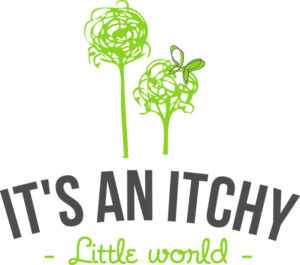Eczema in Children and Low Self Esteem: How to Combat Bullying

The side effects that accompany eczema can cause a lot of insecurities and embarrassment. It’s no surprise that a survey conducted by the National Eczema Association (NEA) found that at least one in five children with eczema are bullied at school due their skin condition.
Eczema presently impacts 9 million children in the U.S. It’s normally characterized by dry, irritated, itchy skin, but can also create some extremely uncomfortable and painful side effects too. These side effects can impact a child’s self-esteem, mood, self-confidence and the ability to make friendships.[1]
Many children who experience severe symptoms from their eczema often isolate themselves from others in fear of being made fun of. The same NEA survey also found that 75 percent of parents of children who have been bullied due to their eczema report lower self-esteem as a result.
Amy Paller, M.D., Director of the Northwestern University Skin Disease Research Center says “Medically treating and managing child eczema is important – but so are understanding and addressing the psycho-social challenges of this disease…The recent NEA survey correlates with research I’ve co-authored in the past, showing a link between bullying related to chronic eczema and a decrease in self-esteem and self-confidence. This eczema bullying can have a tremendous long-term impact on their lives.”
Related posts:
How Can I Cope with Sending a Child to School with Allergies, Eczema and Asthma?
How to Build Confidence in Kids with Eczema
Coping with Eczema: Read These Tops for Emotional Health
Increasing Awareness for Children with Eczema at School
Because education on eczema is often overlooked at school, children have a lack of understanding and empathy for their classmates. This can lead to teasing, taunting or bullying to the point of isolation. If your child is dealing with bullying due to their eczema, the NEA offers a valuable resource for both parents and educators to better understand the physical and behavioral impacts related to eczema in the classroom.
The Eczema: Tools for School guides are valuable tools for every classroom and available for FREE download.

The guide provides information and advice to handle bullying, as well as strategies for increasing eczema awareness in class. There’s also an educator guide available that offers an action plan for teachers and parents. Although most people don’t realize it, an ordinary day at school is filled with a ton of possible triggers that can aggravate eczema symptoms. Internal factors like stress can also trigger a reaction.
“At an age when peers are learning basic skills of social interaction, children with eczema are often singled out and even bullied because of symptoms like visibly dry, red, inflamed skin or scratching. Yet our survey showed that nearly 60 percent of parents believe that their child’s teacher does not understand eczema,” says Julie Block, NEA President and CEO. “We encourage parents and caregivers to share our ‘Tools for School’ guide with their child’s teachers, so that together, educators, parents and students are aware of what the chronic condition, eczema, really is and the psycho-social impact impact it may have on a child’s self-esteem.”
Child eczema is a non-contagious inflammatory skin condition that affects an estimated more than 30 million Americans, including 9 million children.[2] Eczema is characterized by inflamed, dry, itchy skin, often on the face, hands or behind their knees or elbows that can weep clear fluid when scratched. It can also appear as red, inflamed skin or thick dry patches. Treatment for eczema ranges from topical medications and creams to alternative therapies and oral medications. While many children eventually grow out of their eczema, the skin condition can last throughout their lives. There is also growing evidence that shows that those with eczema are more likely to have other serious conditions including depression, heart disease and ADHD.
Has your child ever experienced eczema bullying? How did you help your child cope? How did their school help? Let us know in the comments below!
References
[1] Zuberbier, T., Orlow, S. J., Paller, A. S., Taïeb, A., Allen, R., Hernanz-Hermosa, J. M., & Simon, J. C. (2006). Patient perspectives on the management of atopic dermatitis. Journal of Allergy and Clinical Immunology, 118(1), 226-232.
[2] Eczema Prevalence in the United States. The National Eczema Association website. www.nationaleczema.org/research/eczema-prevalence/. Accessed August 18, 2016.
FROM: Eczema, Emotional Impact of Eczema

I make it a point to send this tool guide to my daughter’s teacher each year. I note that stress is a trigger for her and offer ways to help her through it. I also notify her when she is actually having a flare.
That’s a great idea! What a good mom!!